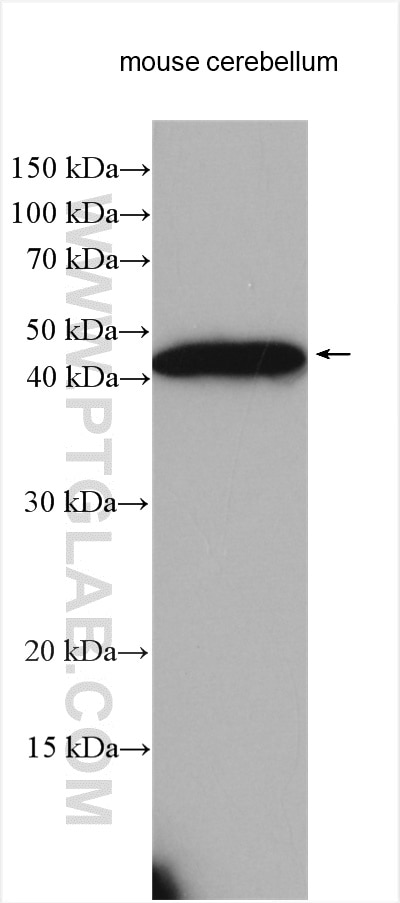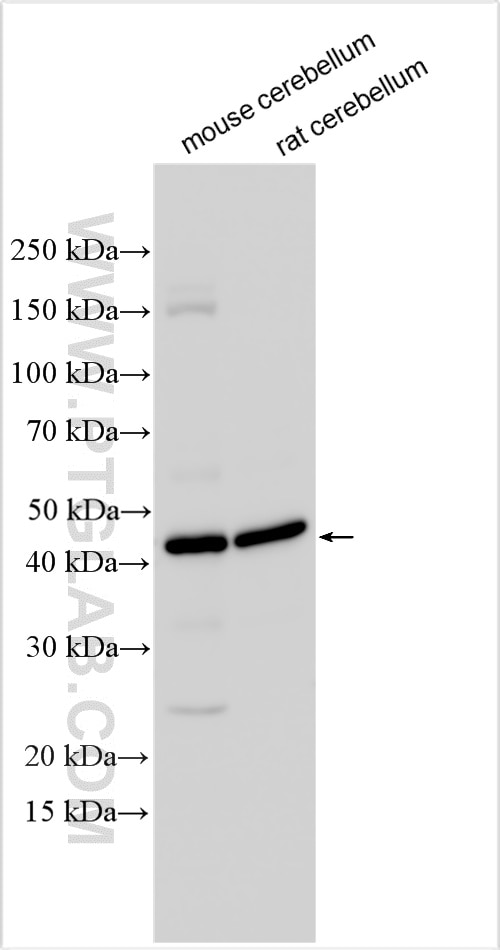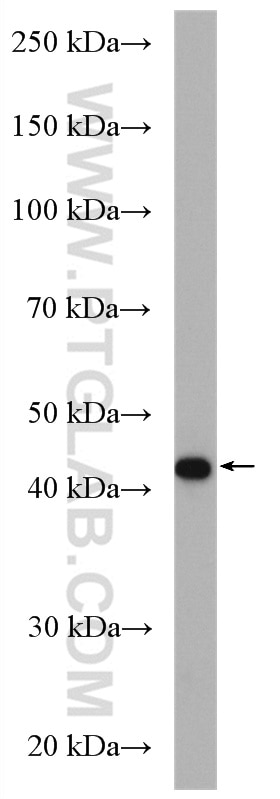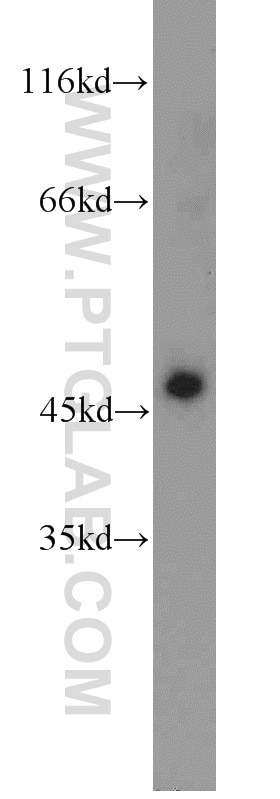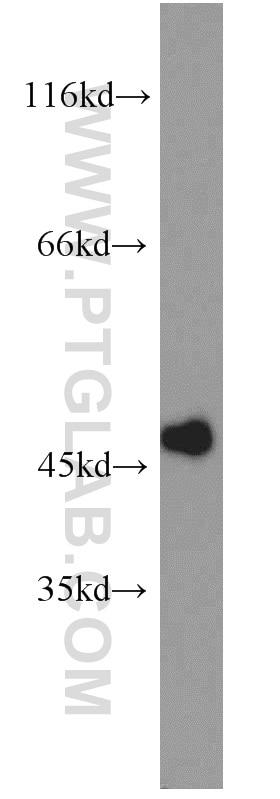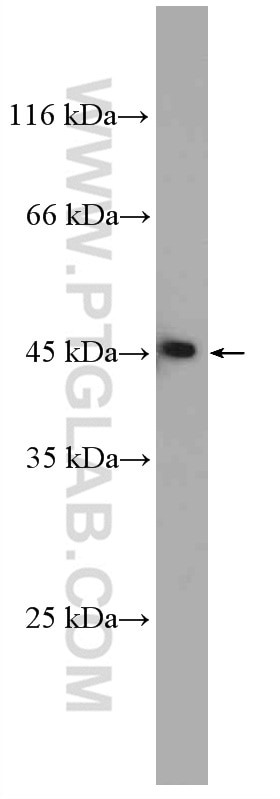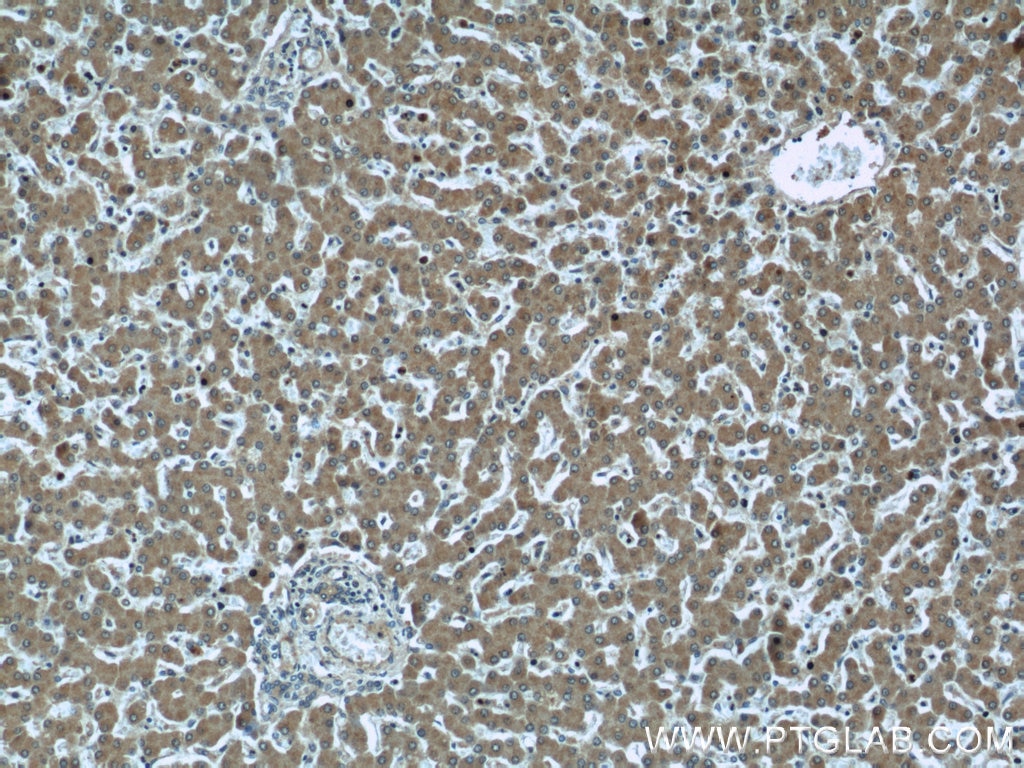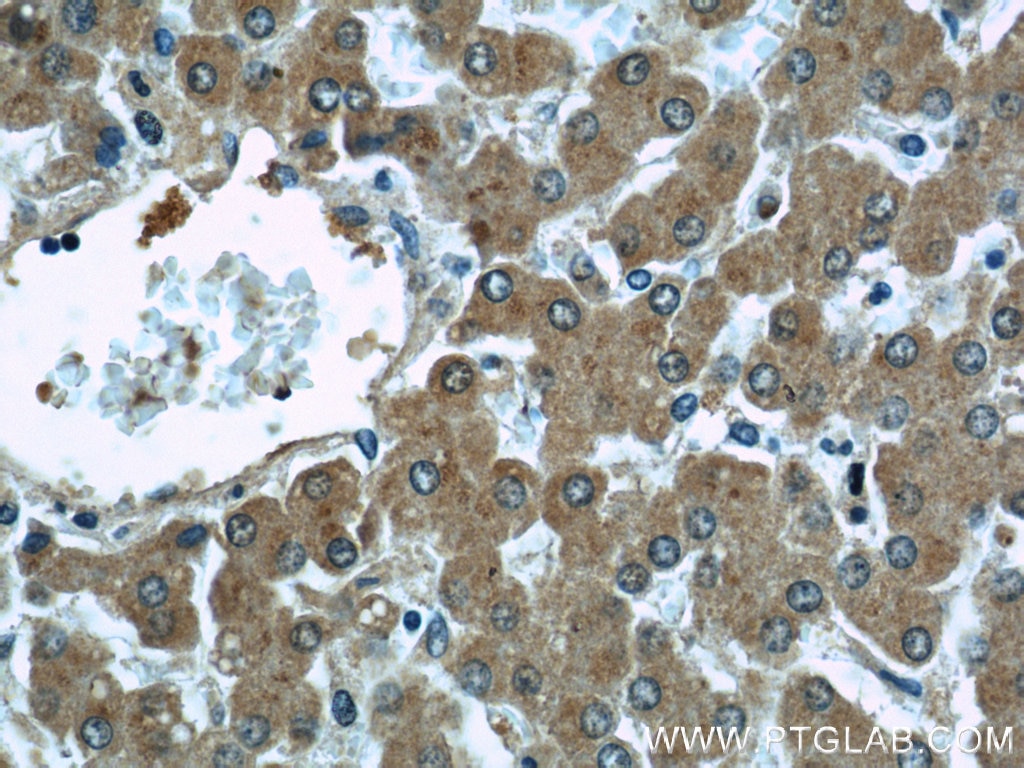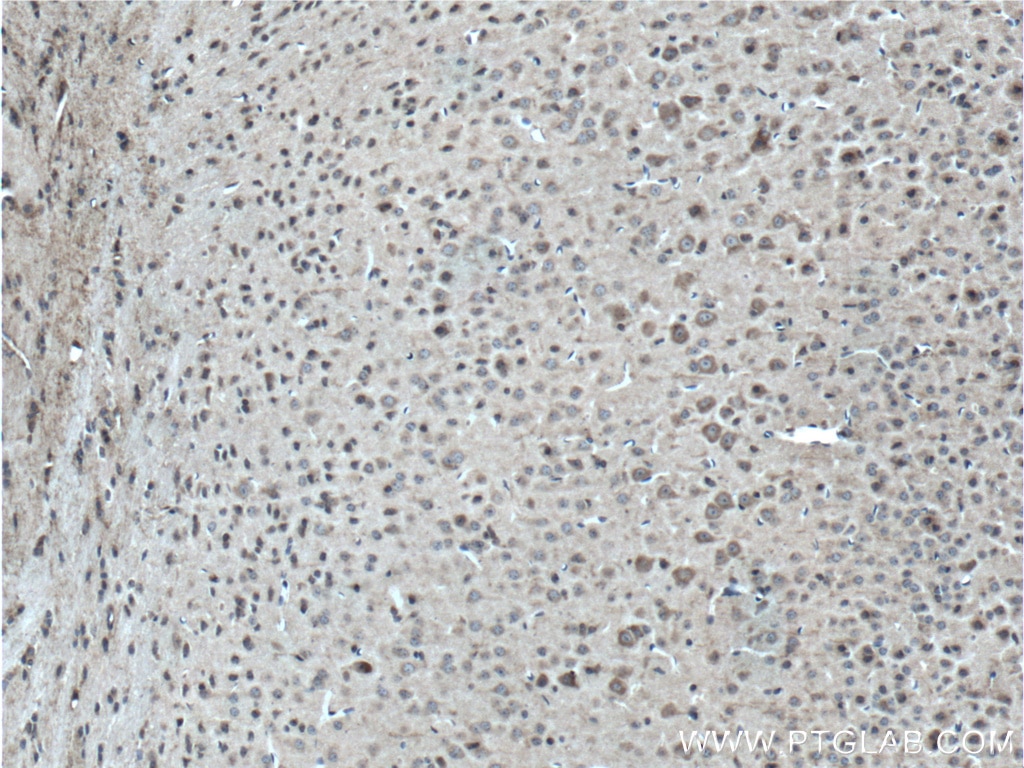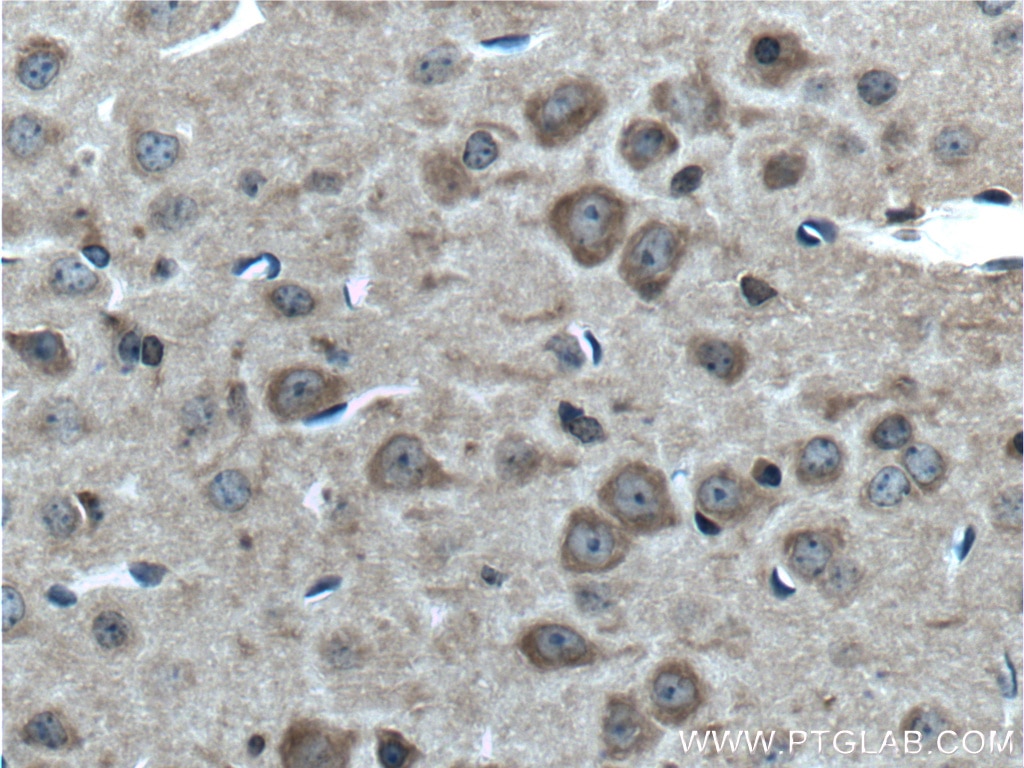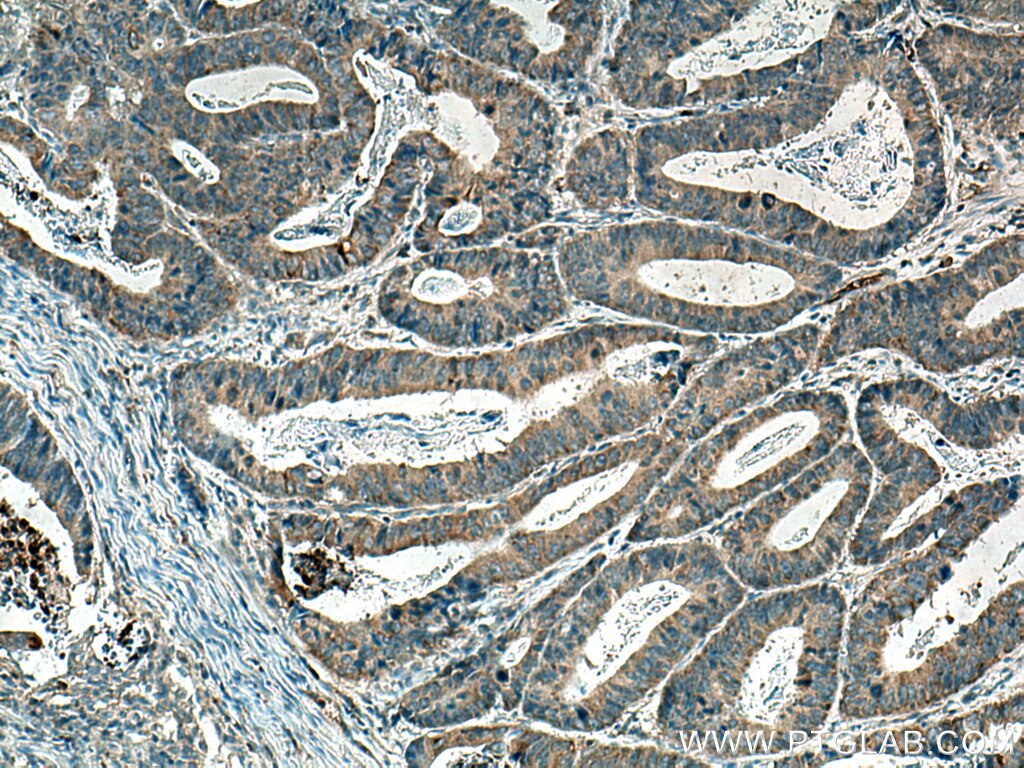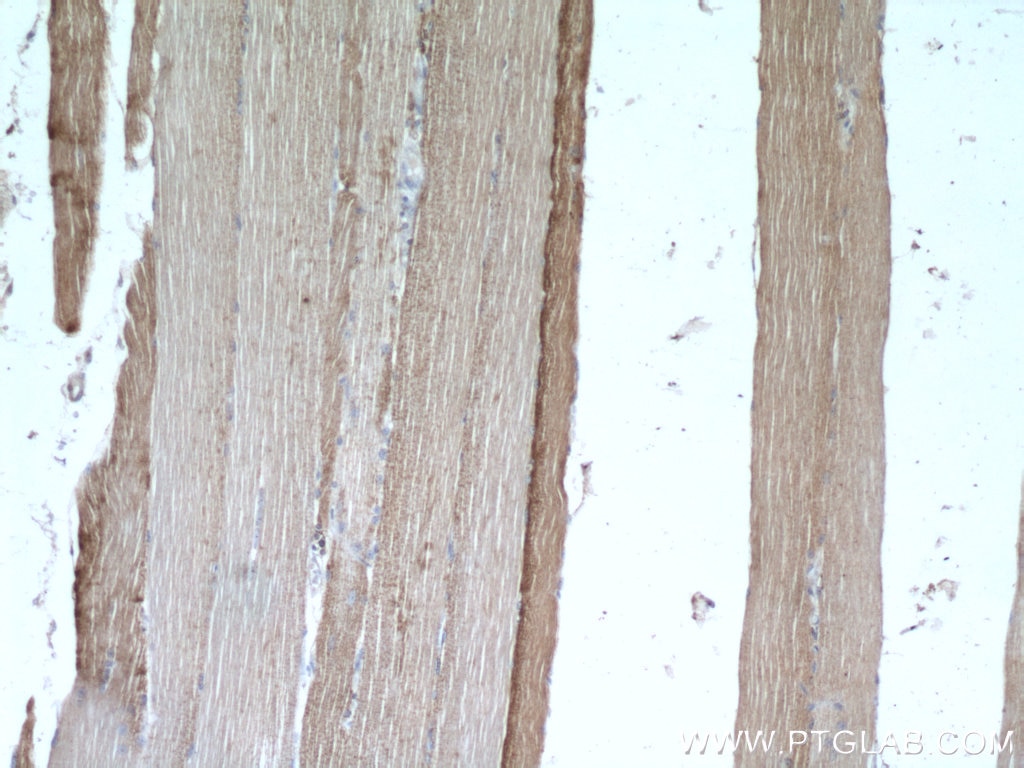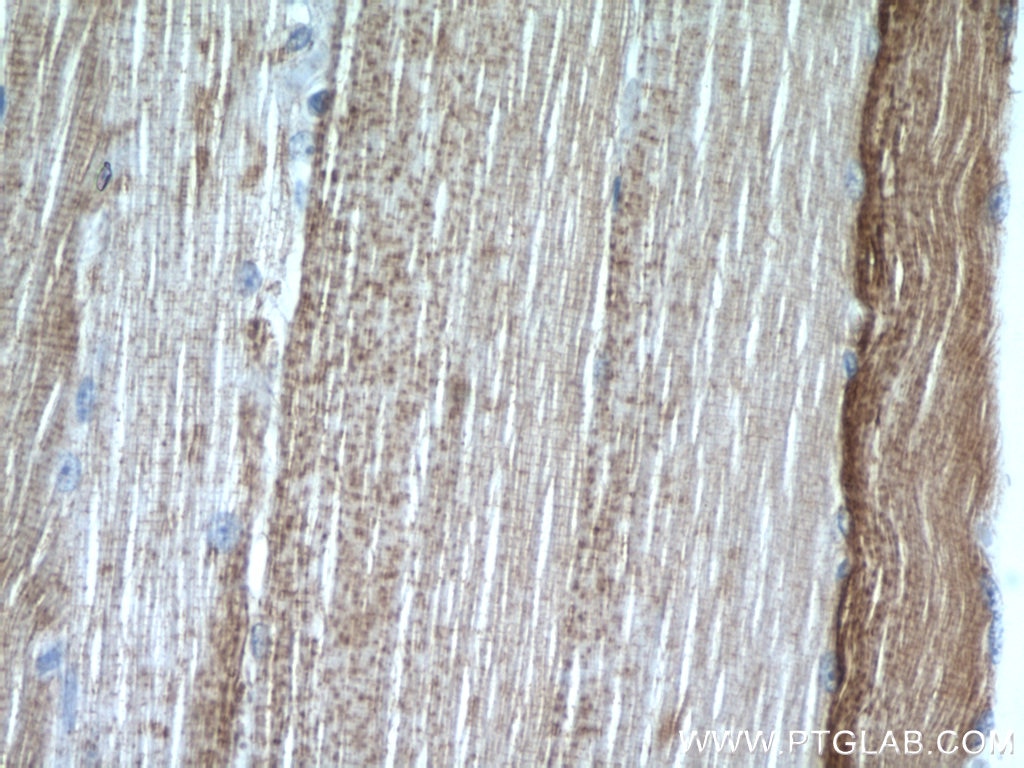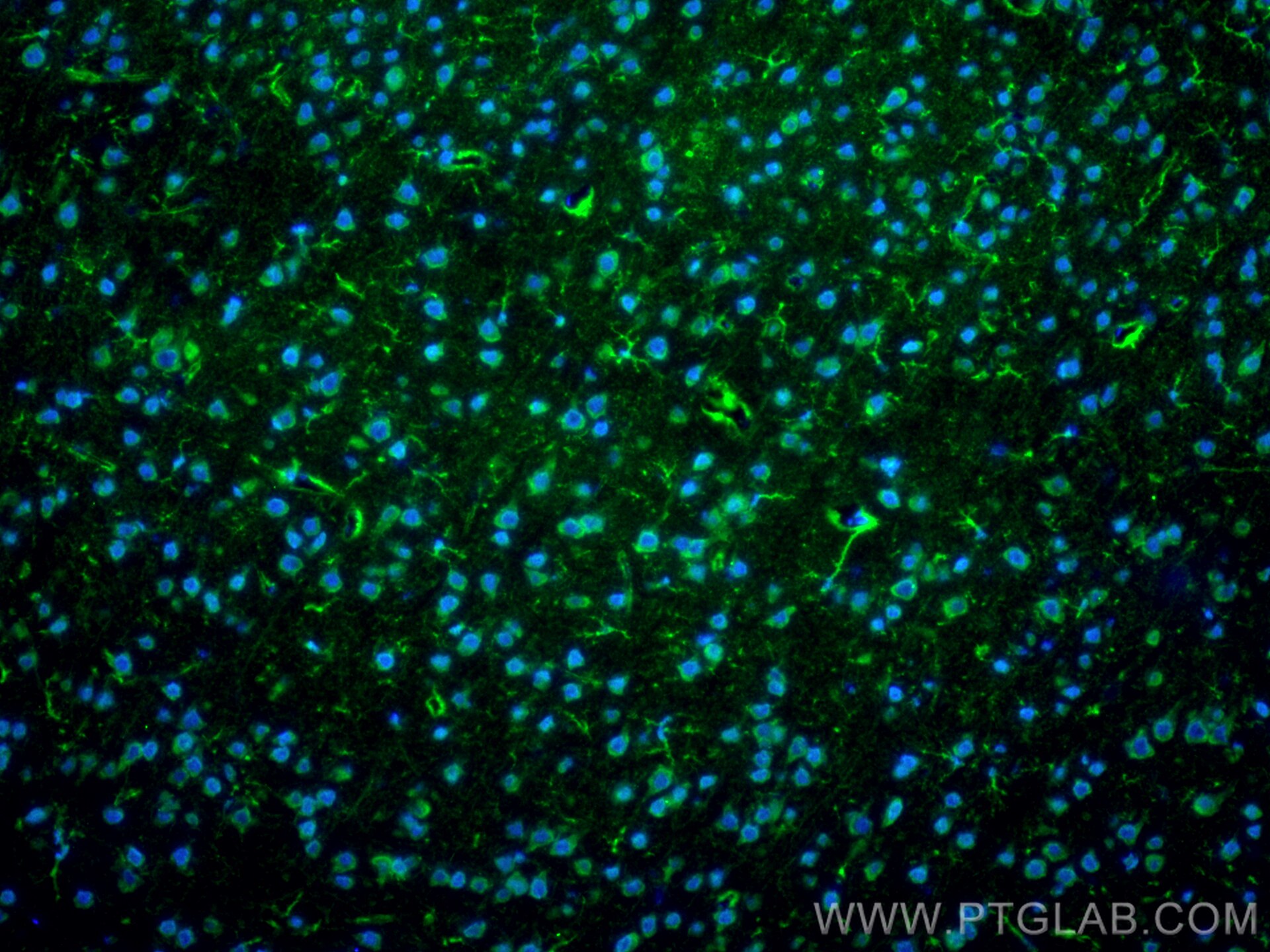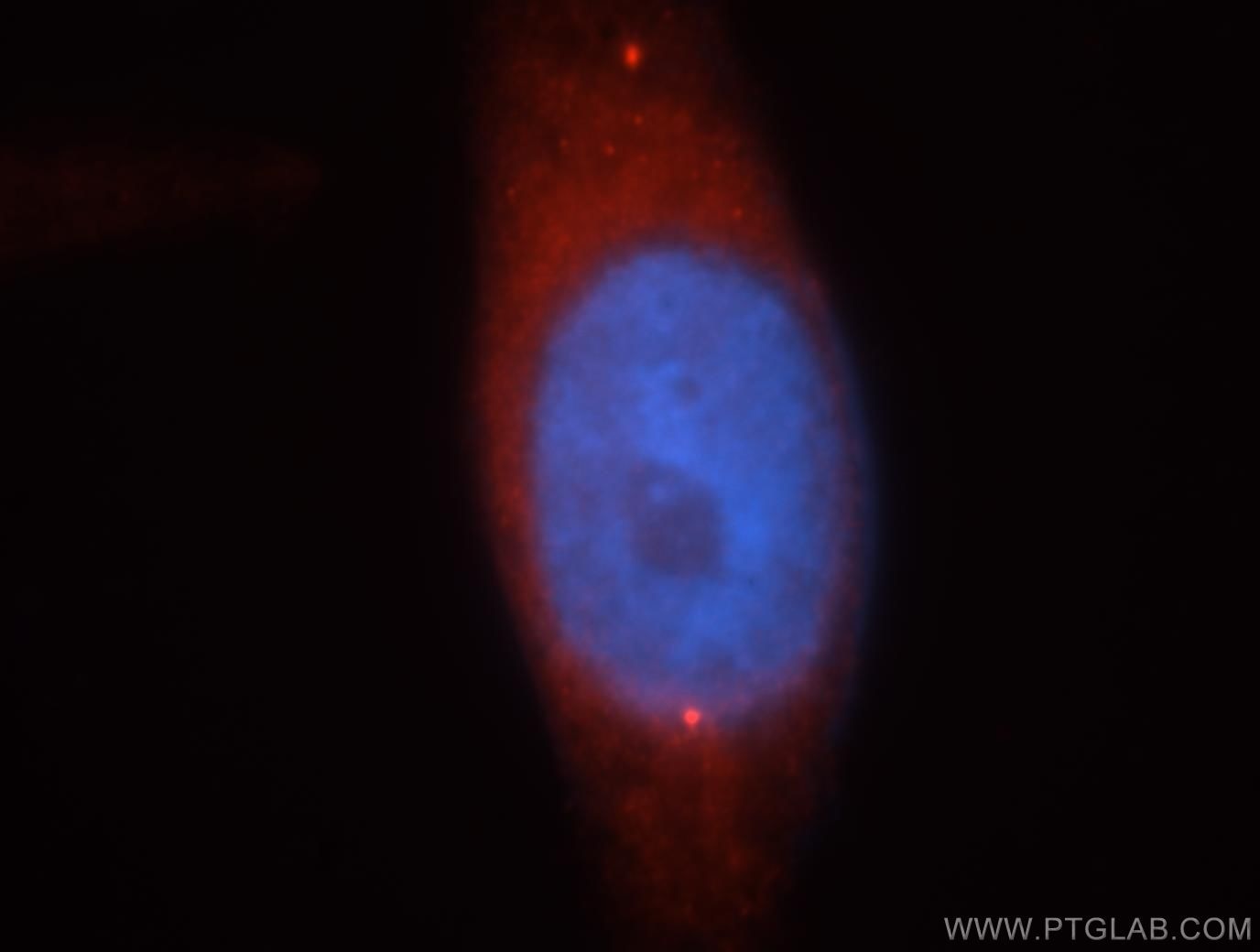Validation Data Gallery
Tested Applications
| Positive WB detected in | mouse cerebellum tissue, COLO 320 cells, HEK-293 cells, mouse colon tissue, mouse heart tissue, rat cerebellum tissue |
| Positive IHC detected in | human liver tissue, human colon cancer tissue, human skeletal muscle tissue, mouse brain tissue Note: suggested antigen retrieval with TE buffer pH 9.0; (*) Alternatively, antigen retrieval may be performed with citrate buffer pH 6.0 |
| Positive IF-P detected in | mouse brain tissue |
| Positive IF/ICC detected in | HepG2 cells, C2C12 cells |
Recommended dilution
| Application | Dilution |
|---|---|
| Western Blot (WB) | WB : 1:500-1:1000 |
| Immunohistochemistry (IHC) | IHC : 1:20-1:200 |
| Immunofluorescence (IF)-P | IF-P : 1:200-1:800 |
| Immunofluorescence (IF)/ICC | IF/ICC : 1:10-1:100 |
| It is recommended that this reagent should be titrated in each testing system to obtain optimal results. | |
| Sample-dependent, Check data in validation data gallery. | |
Published Applications
| KD/KO | See 7 publications below |
| WB | See 20 publications below |
| IF | See 6 publications below |
Product Information
17430-1-AP targets MAGT1 in WB, IHC, IF/ICC, IF-P, ELISA applications and shows reactivity with human, mouse, rat samples.
| Tested Reactivity | human, mouse, rat |
| Cited Reactivity | human, mouse, rat |
| Host / Isotype | Rabbit / IgG |
| Class | Polyclonal |
| Type | Antibody |
| Immunogen | MAGT1 fusion protein Ag11496 相同性解析による交差性が予測される生物種 |
| Full Name | magnesium transporter 1 |
| Calculated molecular weight | 335 aa, 38 kDa |
| Observed molecular weight | 45-47 kDa |
| GenBank accession number | BC060842 |
| Gene Symbol | MAGT1 |
| Gene ID (NCBI) | 84061 |
| RRID | AB_2138982 |
| Conjugate | Unconjugated |
| Form | Liquid |
| Purification Method | Antigen affinity purification |
| UNIPROT ID | Q9H0U3 |
| Storage Buffer | PBS with 0.02% sodium azide and 50% glycerol , pH 7.3 |
| Storage Conditions | Store at -20°C. Stable for one year after shipment. Aliquoting is unnecessary for -20oC storage. |
Background Information
MAGT1 is a mammalian Mg2+-selective transporter being required for cellular magnesium uptake and vertebrate embryonic development. It possesses five putative transmembrane (TM) regions with a cleavage site, a N-glycosylation site, and a number of phosphorylation sites. Recently mutations in MAGT1 has been found to be asscociated with a novel X-linked human immunodeficiency. The MAGT1 protein was undetectable in the patients'cells by western blot or immunofluorescent cell surface staining. MAGT1 had been detected as 38 kDa (PMID: 18705540) or 45-47 kDa (PMID: 27383987) by western blot.
Protocols
| Product Specific Protocols | |
|---|---|
| WB protocol for MAGT1 antibody 17430-1-AP | Download protocol |
| IHC protocol for MAGT1 antibody 17430-1-AP | Download protocol |
| IF protocol for MAGT1 antibody 17430-1-AP | Download protocol |
| Standard Protocols | |
|---|---|
| Click here to view our Standard Protocols |
Publications
| Species | Application | Title |
|---|---|---|
Nature Genetic dissection of Flaviviridae host factors through genome-scale CRISPR screens.
| ||
Adv Sci (Weinh) A Magnesium-Enriched 3D Culture System that Mimics the Bone Development Microenvironment for Vascularized Bone Regeneration. | ||
Small Magnetic Field Boosts the Transmembrane Transport Efficiency of Magnesium Ions from PLLA Bone Scaffold | ||
J Cell Biol Oxidoreductase activity is necessary for N-glycosylation of cysteine-proximal acceptor sites in glycoproteins.
| ||
Cell Death Dis Maintenance of magnesium homeostasis by NUF2 promotes protein synthesis and anaplastic thyroid cancer progression
|
